Although German Shepherds are naturally active dogs, this does not mean they cannot gain weight. Lack of exercise, poor diet including too many treats, and health issues such as thyroid disease can cause your Shepherd to become overweight. Being overweight can cause all sorts of health problems – especially extra strain on their hips – and even shorten their lifespan. Because of this, it’s important to know when your Shepherd is carrying around some extra pounds so you can slim him down again as soon as possible. Watch for the following 3 signs that your German Shepherd Dog is overweight.
How Much Should German Shepherd Weigh?
49 to 88 Lbs
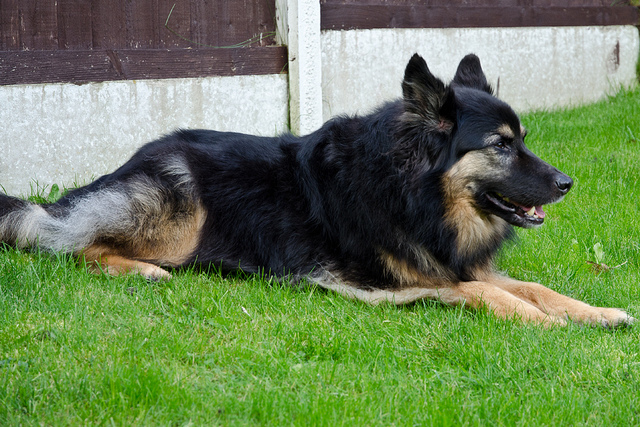
#1 – Can’t Feel Ribs
You should be able to feel your German Shepherd Dog’s ribs when you run your hand over their middle. This can be difficult due to their double coat, especially on long-haired Shepherds, but you should be able to feel them if you lightly push into their coat.
#2 – Panting
Unless your German Shepherd is stressed or too warm, panting is another sign he has too much weight on his body. If your Shepherd only walks a block and is panting, he may be out of shape and overweight. Definitely time to start an exercise regimen to slowly build back his stamina and lose some pounds.
#3 – No Definition
German Shepherds have a certain look to their body that is pretty recognizable. Yours should have a deep rib cage that inclines to a defined waist at the hips. If your German Shepherd is missing this definition, she is overweight. Dr. Sophia Yin’s website has a great, easy to follow guide for checking your Shepherd’s body definition.
Frequently Ask Questions:
Many people give their German Shepherds too much food and accidentally make their dog fat. Gauging how much we need to eat each can be difficult enough, but gauging a dog’s needs can be harder, especially in comparison. If your dog appears healthy, but you are not sure if they are, it’s time to look at their diet and weight. German Shepherds that are too heavy can have several health problems, such as diabetes and arthritis. Read on to find out if your German Shepherd is too fat.
What Is Overweight For A German Shepherd?
Any weight over ninety pounds for a male or over 75 for a female may be overweight. However, your German Shepherd’s ideal weight will depend on many things, such as muscle mass, size, activity level, and gender. A German Shepherd is considered overweight if its body mass is more than 20% fat. Because purebred German Shepherds have similar body types, it’s easy to tell if your dog is too fat just by looking at them. In addition, overweight dogs may have trouble breathing, playing, walking, skin problems, and joint issues, which are indicators you should not ignore.
How Can I Help My German Shepherd Lose Weight?
Every dog needs to work out to stay fit and healthy. People think of German Shepherds as active dogs who need a lot of exercises. If your dog is not very active right now, start giving it more exercise throughout the day. A German Shepherd should be active for an hour and a half daily. Aim for this, and keep doing it once your dog is at the right weight.
Next, consider your dog’s diet. You need to make sure that your German Shepherd gets the right amount and kind of dog food. Many dogs are overweight because their owners feed them table scraps, processed food, and other foods they should not eat. Instead, choose a high-quality dry dog food made just for big dogs. Large dog food has special nutrients to take care of your German Shepherd’s joints, which is important if he or she is overweight.
Treats should be given to the dog less often or taken away completely. How many times you feed your dog daily can make a huge difference in their weight. Most dogs only need to be fed a max of three times per day. If you change your dog’s exercise and eating habits and they are still overweight, take them to the veterinarian to find out if there could be a medical or medication cause for your dog’s obesity.
What Is The Ideal Weight For A German Shepherd?
How can I tell if my German Shepherd is getting too big? A male German Shepherd should weigh between 65 and 90 pounds, and a female should weigh between 50 and 70 pounds. You can also check to see if your German Shepherd is too heavy by looking at their upper torso and their height. On average, a male German Shepherd is between 24 and 26 inches tall, and a female German Shepherd is between 22 and 24 inches tall.
How Much Does An Obese German Shepherd Weight?
Most males weigh between 65 and 90 pounds, and most females weigh 50 to 70 pounds. This range only gives you a general idea of how much your German Shepherd should weigh. If your German Shepherd is too fat, you should be able to tell just by looking at him. The German Shepherd should not look fat or swollen in any way, of course. If your dog’s waist looks bigger than its back hock joints, he is probably too heavy. When you look at your German Shepherd from the side, if the stomach looks the same size as the chest, this is also a sign.
Is 90 Pounds Overweight For A German Shepherd?
For a male German Shepherd, ninety pounds is on the high side of healthy weight. Therefore, focus on maintaining his weight to prevent him from gaining weight and becoming unhealthy. Alternatively, a female should not weigh ninety pounds, which would make her extremely obese.
Does Walking Help German Shepherd Lose Weight?
Just like people, animals can gain weight if they do not burn as many calories as they eat. Even if it’s just a quick 20-minute game of fetch, make sure your dogs do things that get them up and moving. Walking and running are the best ways to help your dog lose weight after checking their health and their diet. Start with a short walk around your neighborhood or, if they like to play, a 20-minute game of fetch. After a month, you can start taking longer walks, going on outdoor adventures, and doing other more active things.
What Human Food Can I Give My German Shepherd To Lose Weight?
Whole, fresh foods is an important part of maintaining or losing weight for your dog. Many highly processed dog foods are full of carb-based fillers. A fresh diet offers good protein, but they also have the fiber and moisture that your dog needs to stay full. Your dog will stay healthy if you feed them food that is high in nutrients and easy for their bodies to use.
German Shepherds can eat foods that people eat, like beef, chicken, pork, turkey, salmon, tuna, eggs, and tuna. They can also eat apples, bananas, berries, carrots, peas, pumpkins, other fruits and vegetables, and other foods like rice and pasta, yogurt, cheese, and peanut butter. Just remember to limit sugar and carbs.
Do Green Beans Help German Shepherd Lose Weight?
If you give your dog green beans as a treat instead of biscuits, it can help them lose weight, as long as you also get them more exercise and watch what they eat normally. If your dog does not get enough exercise and eats too many calories for their age, breed, and lifestyle, feeding them green beans will not help them lose weight.
Should You Be Able To See German Shepherd Ribs?
A German Shepherd Dog should not have any visible ribs. If you can see the dog’s ribs, that means he is too thin. When you touch the dog, you should be able to feel the ribs and spine, but not too much. There needs to be a clear waistline.
How Many Cups Of Food Should A German Shepherd Eat?
Every day, give your adult German Shepherd between 2.5 and 3.5 cups of dry kibble. Active male dogs should eat at the top of this range, which means they should get 3.5 cups. Dogs that do not do much or are older and do not need as much food should eat 2.5 cups.
What Is A German Shepherds Favorite Food?
Every German Shepherd will have a different favorite food; however, most of them will enjoy meat or peanut butter as their favorite. You may even find your dog has a preference for fruit or veggies like watermelon, apples, sweet potato, or carrots. If your dog loves carbs or sweets, reduce the amount they get to the bare minimum to keep them healthy.
Can German Shepherds Weigh 100 Pounds?
German Shepherds are usually one of the largest breeds.
When it comes to body shape, males and females are very different from each other. Males are bigger, have bigger heads, and have a very masculine appearance. Girls are smaller and have more delicate bones.
An adult male is usually between 24 and 26 inches tall at the shoulders and weighs between 75 and 90 pounds. A full-grown female German Shepherd is between 20 and 22 inches tall and 50 to 75 pounds heavy. If your German Shepherd weighs 100 pounds, they are on the border of obesity. Check with your veterinarian, as other factors can play a part.
Overweight Breed Informational Pages
- Is My Bulldog Overweight Or Obese?
- Is My Chihuahua Overweight Or Obese?
- Is My Corgi Overweight Or Obese?
- Is My Dachshund Overweight Or Obese?
- Is My Doberman Overweight Or Obese?
- Is My German Shepherd Overweight Or Obese?
- Is My King Charles Spaniel Overweight Or Obese?
- Is My Lab Overweight Or Obese?
- Is My Maltese Overweight Or Obese?
- Is My Pit Bull Overweight Or Obese?
- Is My Pomeranian Overweight Or Obese?
- Is My Rottweiler Overweight Or Obese?
- Is My Shih Tzu Overweight Or Obese?
- Best Joint Supplement for Dogs
- Best CBD Gummies for Dogs
- Goat's Milk for Dogs
- Skin & Coat Supplements for Dogs
- Weight Gain Supplements for Dogs
- Muscle Building Supplements for Dogs
- Heart Supplements for Dogs
- Multivitamins for Dogs
- Pill Pockets for Dogs
- Digestive Enzymes for Dogs
- Turmeric for Dogs
- Liver Supplements for Dogs
- Tear Stain Supplement for Dogs
- Breath Fresheners for Dogs
- Kidney, Urinary, & Bladder Supplements for Dogs
- Stool Eating Deterrent for Dogs
- Eye Supplements for Dogs
- Melatonin for Dogs
- Apple Cider Vinegar for Dogs
- Green Lipped Mussels for Dogs
- L Theanine for Dogs
- Chondroitin Supplements for Dogs
- MSM for Dogs
- Valerian Root for Dogs
- Chamomile for Dogs
- Boswellia for Dogs
- L Tryptophan for Dogs
- Yucca for Dogs
- Licorice Root for Dogs
- Bromelain for Dogs
- Papain for Dogs
- Devil's Claw for Dogs
- Quercetin for Dogs
- Hemp gummy for dogs
- Best Hemp Dog Treats
- Best Hemp Oil for Dogs
- Best Calming Treats, Chews, & Supplements for Dogs
- Best Bone Broth for Dogs
- Best Fish Oil for Dogs
- Best Probiotics for Dogs
- Best Hip Dysplasia Supplements for Dogs
- Best Colostrum for Dogs
- Best Quercetin for Dogs
- Best Greens for Dogs Supplements
- Best Vitamin C Supplements for Dogs
- Best Probiotic for Dog with Allergies
- Best Taurine Supplements for Dogs
- Best Dog Food Toppers
- Best Anal Gland Supplement for Dogs
- Best Dog Probiotic Powder
- Best CoQ10 Supplement for Dogs
- Best Liquid Glucosamine for Dogs
- Best Wrinkle Creams, Balms, and Wipes for Dogs
- Best Puppy Calming Treats
- Best Colloidal Silver for Dogs
- Best Adaptogen Supplements for Dogs
- Best Cognitive Supplements for Dogs
- Best Bee Pollen for Dogs
- Best Vitamin A Supplements for Dogs
- Best Vitamin E Supplements for
- Best Liquid Glucosamine Supplements for Dogs
- Best SAM-e Supplements for Dogs
- Best Hyaluronic Acid Supplements for Dogs
- Best Apple Cider Vinegar Supplements for Dogs
- Best Diarrhea Medicine for Dogs
- Best Milk Thistle for Dogs
- Best Turkey Tail Mushroom Supplements for Dogs
- Best Astaxanthin Supplements for Dogs
- Best Lutein Supplements for Dogs
- Best Electrolyte Supplements for Dogs
- Best Coconut Oil for Dogs
- Best Prenatal Vitamins for Dogs
- Best Puppy Milk Replacements
- Best Iron Supplements for Dogs
- Best Dewormer Products for Dogs
- Best Mange Medications for Dogs
- Best Cough Relief Products for Dogs
- Best Sinus Relief Products for Dogs
- Best Collapsed Trachea Supplements for Dogs
- Best Fireworks Anxiety Relief Products for Dogs
- Best Thunderstorm Anxiety Relief Products for Dogs
- Best Travel Anxiety Relief Product for Dogs
- Best Supplements for a Dog with a Torn ACL
- Best Supplements for a Dog with Patellar Luxation
- Best Supplements for a Dog with Intervertebral Disc Disease
- Best Zinc Supplements for Dogs
- Best Biotin Supplements for Dogs
- Best Tart Cherry Supplements for Dogs
- Best Resveratrol Supplements for Dogs
- Best Ginkgo Biloba Supplements for Dogs
- Best Ashwagandha Supplements for Dogs
- Best Supplements for Dogs with Cushing's Disease
- Best Adrenal Supplements for Dogs
- Best NAD+ Supplements for Dogs
- Best NMN Supplements for Dogs
- Best Supplements for Dogs with Dementia
- Best Supplements for Dogs with CCD(Canine Cognitive Dysfunction)
- Best Fiber Supplements for Dogs
- Best Spirulina for Dogs
- Best Hairball Remedies for Dogs
- Best Eye Drops for Dogs with Allergies
- Best Magnesium Supplements for Dogs
- Best Brushes for Double-Coated Dogs
- Best Dandelion Root Supplements for Dogs
- Best Probiotic for Dogs with Yeast Infections
- Best Flaxseed Oil for Dogs
- Best Chamomile Supplements for Dogs
- Best Lavender Supplements. Treats & Sprays for Dogs
- Best Collagen Supplements for Dogs
- Best Kelp Supplements for Dogs
- Best Activated Charcoal for Dogs
- Best Slippery Elm Supplements for Dogs
- Best Supplements for Dogs with Seizures & Epilepsy
- Best Antioxidant Supplements for Dogs
- Best Ubiquinol Supplements for Dogs
- Best Hormone & Glandular Supplements for Dogs
- Best Thyroid Supplements for Dogs
- Best Iodine Supplements for Dogs
- Best Dog Shedding Supplements for Dogs
- Best Detox Supplements for Dogs
- Best Postbiotics for Dogs
- Best Aspirin Products for Dogs
- Best Dog Anti-Nausea Products
- Best Dog Mouthwashes
- Best Camelina Oils for Dogs
- Best Hemp Seed Oils for Dogs
- Best Natural Anti-Inflammatories for Dogs
- Best Cancer Supplements for Dogs
- Best Sardine & Anchovy Oils for Dogs
- Best Fatty Acid Supplements for Dogs
- Best Chia Seed Supplements & Treats for Dogs
- Best Olive Oils for Dogs
- Best Amino Acid Supplements for Dogs
- Best Moringa Supplements for Dogs
- Best Echinacea Supplements for Dogs
- Best Cranberry Supplements for Dogs
- Best D-Mannose Supplements for Dogs
- Best Nettle Leaf Supplements for Dogs
- Best Marshmallow Root Supplements for Dogs
- Best Astragalus Supplements for Dogs
- Best Pumpkin Seed Supplement for Dogs
- Best Supplements for a Dog Wetting The Bed
- Best Blueberry Supplement for Dogs
- Best Bromelain Supplements for Dogs
- Best Yucca Supplements for Dogs
- Best Ginger Supplements for Dogs
- Best Rosehip Supplements for Dogs
- Best Allergy Medicines for Dogs
- Best Reishi Mushroom Supplement for Dogs
- Best Maitake Mushroom Supplement for Dogs
- Best Chaga Mushroom Supplement for Dogs
- Best Shiitake Mushroom Supplement for Dogs
- Best Cordyceps Mushroom Supplement for Dogs
- Best Lion's Maine Supplement for Dogs
- Have question? - Ask in our Dog Health Forum

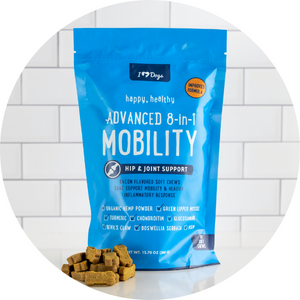
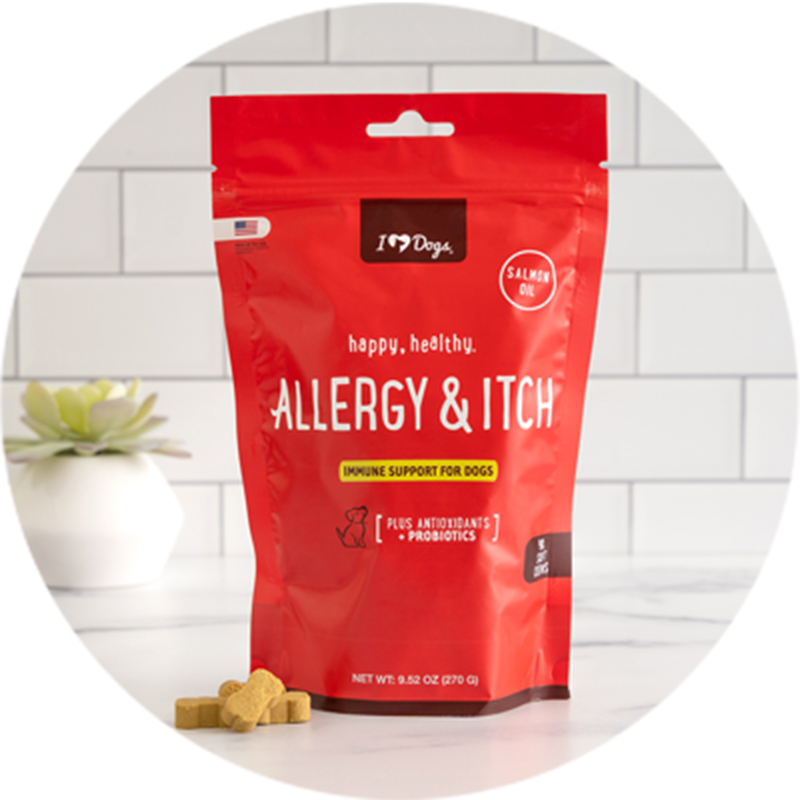
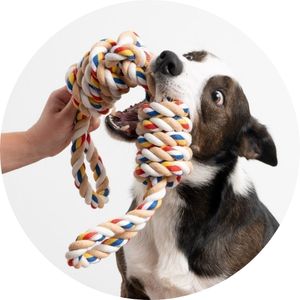
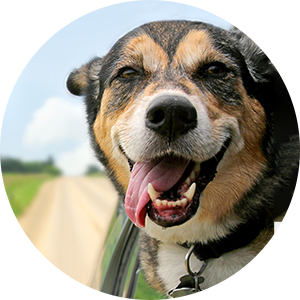
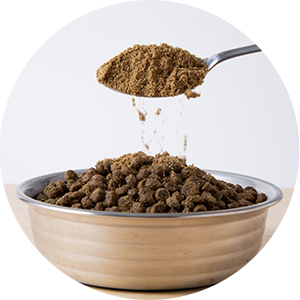
 Toledo, United States.
Toledo, United States.
